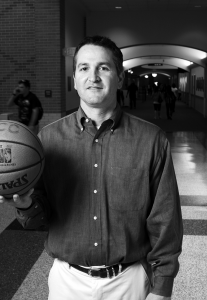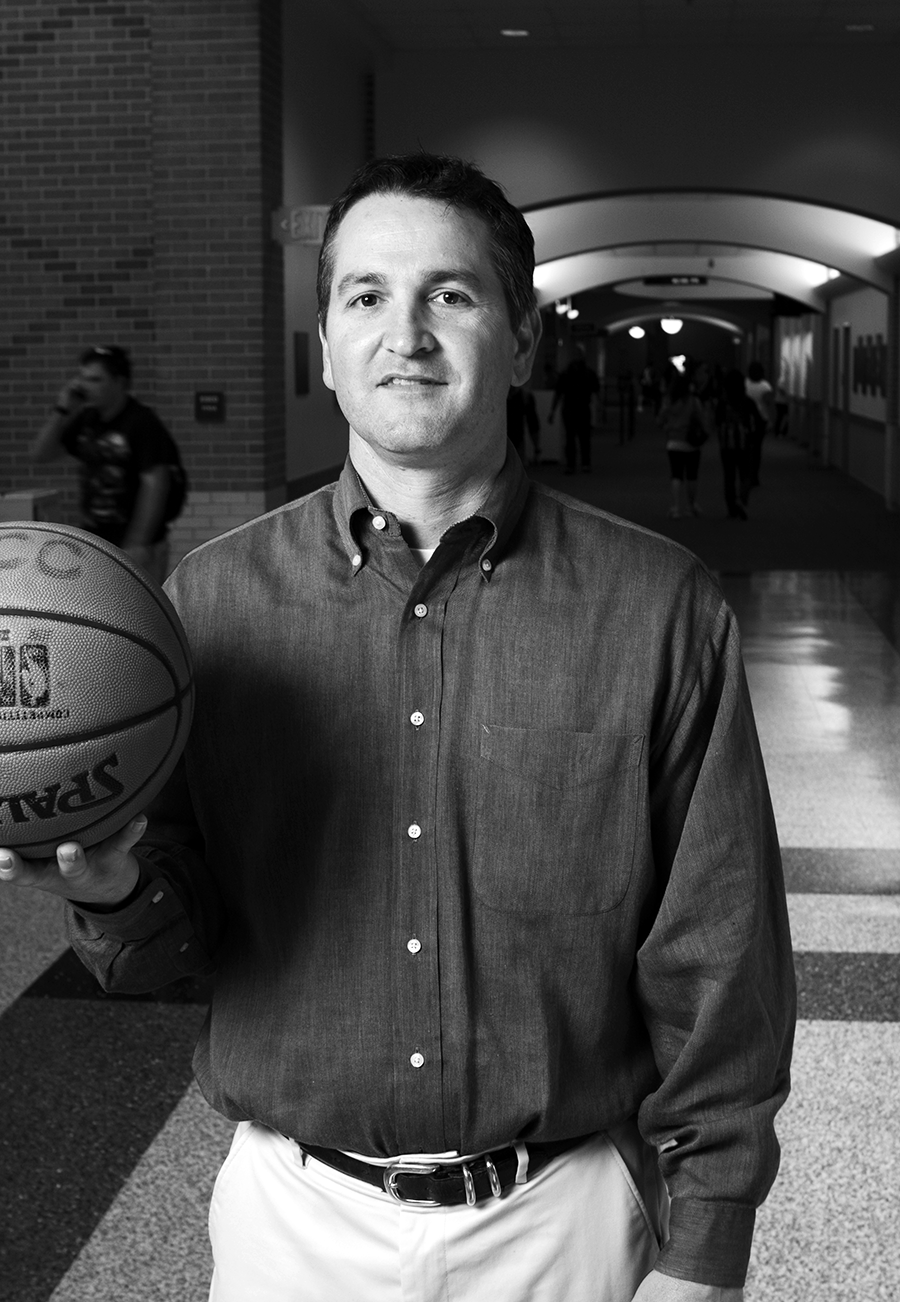By Marley Malenfant/feature editor
He slept in the dorms. He took care of the players’ laundry. He was always holding a clipboard.
Before his colleagues knew him as Doug, his players knew him as Coach Peak.

Casey Holder/The Collegian
Before Doug Peak became the director for student development services, he was an assistant coach for 10 years. His first coaching job was at East Texas State, and he later returned when it became Texas A&M-Commerce. He also coached at Navarro College and Southern Arkansas.
Peak’s father, Paul, was a head coach for 30 years in Division II NCAA basketball. His father retired in 2000 with a 510-365 record. Peak knew early on that basketball would have an influence on him.
“I grew up in the gym,” he said. “I definitely could be defined as a gym rat.”
Peak had players and coached against players who are now playing professional basketball. He recalls a championship game against former NBA point guard Steve Francis, who attended a Division II school before entering the league. In his office, Peak has a framed photo of himself and Shaquille O’Neal when Peak was at Texas A&M-Commerce.
“When I was at Navarro, we had this guy. Antonio Garcia, who now plays in Spain, was one of our top players,” he said. “We played against San Jacinto in the ’96-’97 championship game, and Francis was their sixth man. He played a lot of minutes. They beat us in the championship game. It was safe to say he won that game for them too.”
Peak said his fondest years were at Navarro. He said many of his former players stay in touch and even call to tell their former coach they’re getting married.
“You’re running together, you’re conditioning together, you’re hurting together and there’s highs and lows,” he said. “You develop relationships that are long lasting. They last forever.
“You have first-and second-year students going through the biggest changes of their lives. Many of them are from foreign countries, and they depended upon you as if you were a father figure.”
During Peak’s coaching career, he believes he’s been successful. He said making the playoffs for the first time at Southern Arkansas was a major achievement.
“As far as a coach, it’s those games you’re not supposed to win that are special,” he said. “I had one coach who at the end of every game [we’d lose] would say, ‘Thank you for this loss.’ But you know we need it. We need it to learn. You can’t just run around with just success.”
Even as a married man, Peak spent a lot of time with his players. He lived in the dorms when he was at Navarro. But Peak said he knew he was spending too much time on the court instead of being at home. He had seen basketball take a toll on his father, and his parents divorced when Peak was younger.
“When I was at Arkansas, I was also the student activities coordinator, so I was constantly on campus,” he said. “I was with the students till late. All that time I was spending with the players was the time I needed to spend with my family.”
Peak’s last stop was at Texas A&M-Commerce in 2003. Peak said he wanted a job where he could help students. For a short time, Peak taught a class designed for athletes titled Life Skills.
“It was about how to live and how to be successful in life, not just on the basketball court or the football field,” he said. “And I really, really enjoyed it.”
Done with coaching, Peak came to SE Campus in 2004 as an adjunct in physical education and a year later became director of student development services.
Peak still plays basketball and enjoys golf as his hobbies. Peak said if he was ever a head coach, he may have never come to TCC.
“I have a lot of respect for coaches because it’s not an easy profession,” he said. “Seeing what my father went through and the amount of time you’re away from home, I respect it because it takes so much hard work. At the time, it [leaving coaching] was the right thing and the healthiest thing to do for me and my family.”

